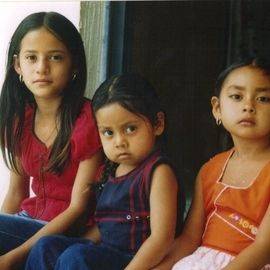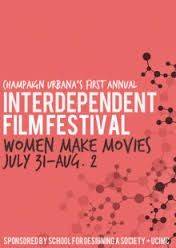 Over the course of three days — this coming Thursday, July 31st through Saturday, August 2nd — a brand-new filmmaking festival will make its mark on Champaign-Urbana. The first annual Interdependent Film Festival will present… well, I’ll just let the press release say it: “Experimental and documentary films by women filmmakers from the Champaign-Urbana area who explore the interconnections between art & immigration, language & health care, and ecofeminism & solidarity between people around the world.” This three-day celebration of film and community will also feature a gala opening ceremony, Q&A conversations (termed “interdependency panels” by the organizers) and a closing ceremony.
Over the course of three days — this coming Thursday, July 31st through Saturday, August 2nd — a brand-new filmmaking festival will make its mark on Champaign-Urbana. The first annual Interdependent Film Festival will present… well, I’ll just let the press release say it: “Experimental and documentary films by women filmmakers from the Champaign-Urbana area who explore the interconnections between art & immigration, language & health care, and ecofeminism & solidarity between people around the world.” This three-day celebration of film and community will also feature a gala opening ceremony, Q&A conversations (termed “interdependency panels” by the organizers) and a closing ceremony.
Included in this inaugural crop of films will be haunting works about toxic waste dumps, celebrations of street artists, the battle against illiteracy in Cuba circa 1960, an award-winning animated film, and so much more.
The festival’s schedule of events includes:
Thursday, July 31st
6 p.m. — Interdependent Film Festival Social
7 p.m. — No Place To Put It by Roberta Benett; The Monstanto Hearings by Sarah Kanouse & Sarah Lewison
Friday, August 1st
7 p.m. — Maestra by Catherine Murphy; Health Care in All the Wrong Places by Susan Parenti
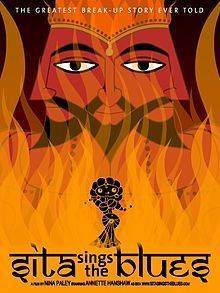 Saturday, August 2nd
Saturday, August 2nd
12 p.m. — Assorted Short Films, Meadow Jones; Sita Sings the Blues by Nina Paley
7 p.m. — Assorted Short Films, Kate Deciccio; Free Trade Refugees: From Chiapas to the Prairie by Carol Huang
This event, sponsored by the Urbana-Champaign Independent Media Center and the School for Designing a Society, is “designed to help encourage grassroots filmmaking among Urbana-Champaign community members,” says the press release.
The author of the quoted press release is Rachel Lauren Storm, who is Assistant Director of the Women’s Resources Center and Programming Chair for the Urbana-Champaign Independent Media Center. Ms. Storm, who also coordinates the University’s annual Feminist Film Festival, was kind enough to answer some questions about this new venture.
Smile Politely: How did you select the films/directors for this year’s festival?
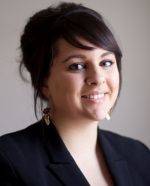 Rachel Storm: This inaugural year for what we hope to be an annual Interdependent Film Festival is dubbed “Women Make Movies” and seeks to highlight women filmmakers producing documentary and experimental works that highlight social issues, multiple, intersecting feminisms, and justice. Susan Parenti, Organizer with the School for Designing a Society and director of Health Care in All the Wrong Places, a locally produced film that premiered at the Art Theater in downtown Champaign this past year, approached the Urbana-Champaign Independent Media Center with the idea of bringing local filmmakers together who produced films on next-to-no budgets on local, national, and international issues. The idea of an Interdependent Film Festival was born both of this desire to bring together local filmmakers and also to underscore that these films “took a village” and help participants see film-making as accessible. The festival is co-hosted by the School for Designing a Society and the Urbana-Champaign Independent Media Center — the former being a school that invites students to imagine and create alternatives to existing social problems and the latter being a community hub for indy media — so the collaboration is a natural one.
Rachel Storm: This inaugural year for what we hope to be an annual Interdependent Film Festival is dubbed “Women Make Movies” and seeks to highlight women filmmakers producing documentary and experimental works that highlight social issues, multiple, intersecting feminisms, and justice. Susan Parenti, Organizer with the School for Designing a Society and director of Health Care in All the Wrong Places, a locally produced film that premiered at the Art Theater in downtown Champaign this past year, approached the Urbana-Champaign Independent Media Center with the idea of bringing local filmmakers together who produced films on next-to-no budgets on local, national, and international issues. The idea of an Interdependent Film Festival was born both of this desire to bring together local filmmakers and also to underscore that these films “took a village” and help participants see film-making as accessible. The festival is co-hosted by the School for Designing a Society and the Urbana-Champaign Independent Media Center — the former being a school that invites students to imagine and create alternatives to existing social problems and the latter being a community hub for indy media — so the collaboration is a natural one.
SP: As one of the coordinators for the event, what are your hopes for the audience’s reaction?
Storm: We want them to make films! According to the 2014 Celluloid Ceiling Report, women accounted for 16% of all directors, executive producers, producers, writers, cinematographers, and editors within the film industry (one of the lowest male to female ratios in any major industry) — and the numbers have been steadily decreasing throughout the past few years. By focusing on women, we aim to help not simply the community but a population most marginalized in the film industry (women), see filmmaking as possible. In future years, we hope to highlight different populations, styles, and genres of filmmaking, but underscoring each year that the goal is to generate community support and resources to encourage anyone in Champaign-Urbana to see themselves as filmmakers and to see their neighbors as partners in projects.
———
In addition to answering some of my questions, Ms. Storm put me in contact with two of the directors whose work will be featured at the Interdependent Film Festival. First up is Carol Huang, director/producer of the documentary Free Trade Refugees.
SP: Could you tell us a little about yourself, Ms. Huang?
Carol Huang: I am a graduate of U of I and am a professor of City College of New York and I am also the Research Director of Asian American and Asian Research Institute of CUNY. I am on my sabbatical and return to live here to complete a research project with Spurlock Museum.
SP: And what drew you to your subject?
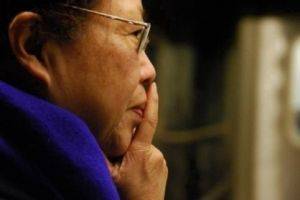 Huang: I am always interested in studying the people who are invisible in a society, and Mexican migrants in rural areas are a group of people who got my attention. I defended my dissertation in 2001 on Chinese students at UIUC from 1904 to 1954, the first part of which will have an exhibit at Spurlock from January to June, 2015. I then started the “Mexican migrant workers in the Midwest” research project with Maria Silva, a long-time community organizer and a Ph.D. candidate in the Communication School. We started with migrant education and located a site for our research in the Hoopeston area with the help of a student recruiter. It was a year of extreme weather — the spring was so wet that, by the time the migrants came into town in June, they could not find work so the school could not find students. The recruiter and we traveled as far as Danville to find students for the school, and, even though we did some filming that summer, the project was not going well. The next year a high wind took the roof off a major canning company in the area and destroyed millions of cans outside the parking lot. The prospect of work in Hoopeston was now so slim that we gave the project up.
Huang: I am always interested in studying the people who are invisible in a society, and Mexican migrants in rural areas are a group of people who got my attention. I defended my dissertation in 2001 on Chinese students at UIUC from 1904 to 1954, the first part of which will have an exhibit at Spurlock from January to June, 2015. I then started the “Mexican migrant workers in the Midwest” research project with Maria Silva, a long-time community organizer and a Ph.D. candidate in the Communication School. We started with migrant education and located a site for our research in the Hoopeston area with the help of a student recruiter. It was a year of extreme weather — the spring was so wet that, by the time the migrants came into town in June, they could not find work so the school could not find students. The recruiter and we traveled as far as Danville to find students for the school, and, even though we did some filming that summer, the project was not going well. The next year a high wind took the roof off a major canning company in the area and destroyed millions of cans outside the parking lot. The prospect of work in Hoopeston was now so slim that we gave the project up.
Gradually, we found another nearby town where there were a group of people from Chiapas; we started a literacy program to teach them English and tried to know them more. When we expressed our intention to make a documentary about their stories, they gladly agreed, and we started to go to the small town weekly to document their lives. We did not realize that it would commit us for such a long time. The project lasted for about 10 years. Through this period of time, many of the workers left town, and many others from their hometown crossed the border to join their family members here. We went to Mexico twice and visited their hometown.
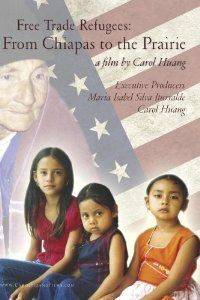 During this period, I moved from Southern Illinois University at Edwardsville to City College of New York to teach, and Maria went back to Ecuador. But every summer when I returned to Urbana I continued to record them, and I decided in 2010 it was time to complete the documentary because the majority of them had been through two migration cycles, meaning that they had crossed the border and returned twice.
During this period, I moved from Southern Illinois University at Edwardsville to City College of New York to teach, and Maria went back to Ecuador. But every summer when I returned to Urbana I continued to record them, and I decided in 2010 it was time to complete the documentary because the majority of them had been through two migration cycles, meaning that they had crossed the border and returned twice.
Post-production took about three years. With the technology advancing in making films, and the language translation issues I faced by myself after Maria left, I gradually depended on my editor Bogdan Heretoiu in Urbana to complete the film while I was teaching at City College of New York. Maria and I cut our 150 hours of tape down to 4 and 1/2 hours, and Bodgan took it to 71 minutes. It was a long process, but I enjoyed this labor of love.
It is a commitment to record and make sense of a group of migrants from Chiapas who crossed the border after NAFTA. How they traveled and settled on the Prairie. How they found jobs, how they organized and shared their resources in order to survive. How do they build their community? Both Maria and I were also interested in making a film without interviewing experts. We hope our film creates a platform for them to talk directly to the viewers.
SP: What message would you like to put across to your audience?
Huang: The group lives among us. Do we pay attention to them? Do we know them? Do we have the courage they had, to cross a dangerous border to reach a strange place in another country — to try to earn a living and send money to support our family members back home without even speaking the language? What made them do this? How do they live their lives here? I hope the audience can take away as much as I have in the past 10 years. I hope they can cross the invisible line that divides us and build a community with them.
———
As mentioned above by Ms. Storm, one of the Festival’s other organizers is Susan Parenti, whose film Health Care in All the Wrong Places was shown not long ago at the Art Theater Co-op.
SP: Ms. Parenti, what drew you to your film subject?
Susan Parenti: My film is about two main subjects: what happens when a metaphor (or frame) goes wild, and what is currently happening to health care systems all across the world. I was initially drawn to both subjects, in that I work with the Gesundheit Hospital Project, which is a project to reclaim the hospital from its current state of being treated as a location for profit transactions (an example of a metaphor, or frame, “gone wild”).
I also write and study plays. Three years ago I read a one-act play by Anton Chekhov called The Proposal in which one person thinks that he is visiting his neighbor in order to propose marriage, while the neighbor thinks he has come to argue about a land boundary dispute. The results are hilarious — each has a framework for understanding the transaction, but their frames are in conflict. I decided to try this with people who go into various businesses and institutions looking for health care, (frame number one), and they are met with people in those institutions who think they’ve come for a completely different set of transactions. The film shows these “head-on collisions” between different frames of reference.
SP: What would you like the audience in Champaign-Urbana to take away from your film?
Parenti: One thing I would really LOVE for C-U audiences to take away is an awareness of language frames, and how you can hear the values both supported and denied in the language people are speaking. I know that may sound abstract, but in actuality different ways of speaking have different capacities. Commercialized language has no capacity for empathy or compassion, for example, and if you speak a “business transaction language” when either seeking or offering health care, you’re doomed.
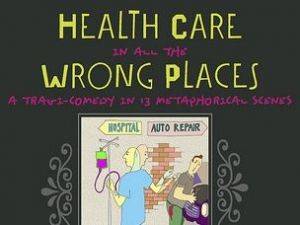 A second thing that I — and all the other filmmakers in this festival — really want is for the audience to be inspired to think that they too could make films. We want to inspire and enable viewers to become do-ers. Every showing of a film in the festival will be accompanied by a giant white board, where we will ask audience members to write down ideas for films they wish would be made—and maybe they themselves could make, working interdependently with other people in town. This will culminate in a “citizen filmmaker” workshop on Saturday, from 4-6 p.m., where we’ll look at the ideas written down and organize ourselves in groups to further brainstorm the making of them.
A second thing that I — and all the other filmmakers in this festival — really want is for the audience to be inspired to think that they too could make films. We want to inspire and enable viewers to become do-ers. Every showing of a film in the festival will be accompanied by a giant white board, where we will ask audience members to write down ideas for films they wish would be made—and maybe they themselves could make, working interdependently with other people in town. This will culminate in a “citizen filmmaker” workshop on Saturday, from 4-6 p.m., where we’ll look at the ideas written down and organize ourselves in groups to further brainstorm the making of them.
We call the film festival an interdependent festival — not an independent film festival — because we want a person to feel they have the capacity to collaborate with others to get out needed messages for society. If it takes a village to raise a child, it takes a community to make a film!
———
Most events will be held at 7 p.m. with a noon matinee on Saturday, August 2nd. All events will be held at the Urbana-Champaign Independent Media Center (UCIMC) located at 202 S. Broadway Avenue in Urbana.
Tickets and festival passes for the Interdependent Film Festival may be purchased through Brownbag Ticketing here. Seating will be limited, so order fast. Tickets are $15 ($7 low-income), with special laminated festival passes for $35.
The Urbana-Champaign Independent Media Center (UCIMC) is located at 202 S. Broadway Ave. Urbana, IL 61801 and accessible by nearly all major MTD buslines. Those traveling by bus should arrive at the Lincoln Square Parking Garage terminal and will see the UCIMC directly across the street. Public metered parking surrounds the building.
If you’d like to see this festival again, either as a lover of film or as a potential filmmaker yourself, do not hesitate to participate. As stated above, it may well take a comminty to make a film. I would go so far as to say it definitely takes a community to make a film festival thrive.








